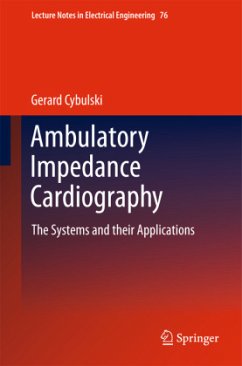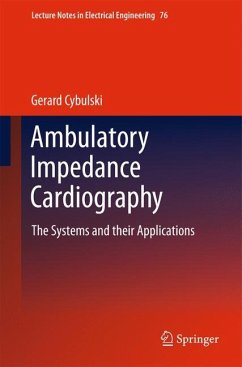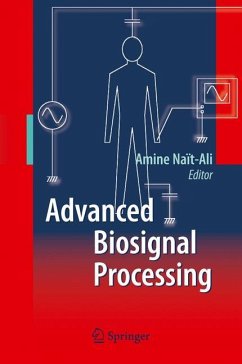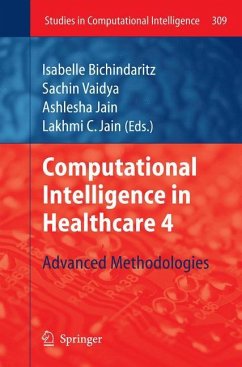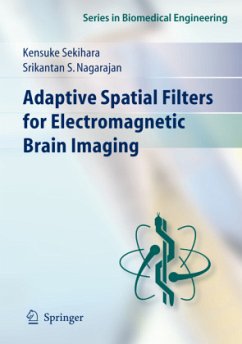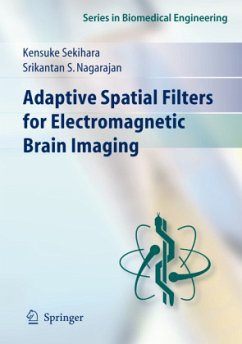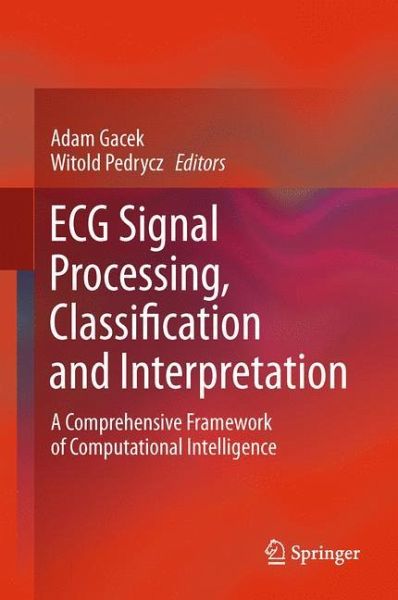
ECG Signal Processing, Classification and Interpretation
A Comprehensive Framework of Computational Intelligence
Herausgegeben: Gacek, Adam; Pedrycz, Witold

PAYBACK Punkte
38 °P sammeln!
Electrocardiogram (ECG) signals are among the more important sources of diagnostic information in healthcare so improvements in their analysis may also have telling consequences. Both the underlying signal technology and a burgeoning variety of algorithms and systems developments have proved successful targets for recent rapid advances in research.ECG Signal Processing, Classification and Interpretation shows how the various paradigms of computational intelligence, employed either singly or in combination, can produce an effective structure for obtaining often vital information from ECG signal...
Electrocardiogram (ECG) signals are among the more important sources of diagnostic information in healthcare so improvements in their analysis may also have telling consequences. Both the underlying signal technology and a burgeoning variety of algorithms and systems developments have proved successful targets for recent rapid advances in research.
ECG Signal Processing, Classification and Interpretation shows how the various paradigms of computational intelligence, employed either singly or in combination, can produce an effective structure for obtaining often vital information from ECG signals. Neural networks do well at capturing the nonlinear nature of the signals, information granules such as fuzzy sets help to confer interpretability on the data and evolutionary optimization may be critical in supporting the structural development of ECG classifiers and models.
The contributors address concepts, methodology, algorithms, and case studies and applications using computational intelligence as a conceptually appealing and practically sound technology for ECG signal processing. The text is self-contained, providing the reader with the necessary background augmented with step-by-step explanation of the more advanced concepts. It is structured in three parts:
· Part I covers the fundamental ideas of computational intelligence together with the relevant principles of data acquisition, morphology and use in diagnosis;
· Part II deals with techniques and models of computational intelligence that are suitable for signal processing; and
· Part III details ECG system-diagnostic interpretation and knowledge acquisition architectures.
A wealth of carefully organized illustrative material is included: brief numerical experiments; detailed schemes, exercises and more advanced problems.
ECG Signal Processing, Classification and Interpretation will appeal to engineers working in the field of medical equipment and to researchers investigating biomedical signal processing, bioinformatics, computational intelligence and its applications, bioengineering and instrumentation. The three-part structure also makes the book a useful reference source for graduate students in these disciplines.
ECG Signal Processing, Classification and Interpretation shows how the various paradigms of computational intelligence, employed either singly or in combination, can produce an effective structure for obtaining often vital information from ECG signals. Neural networks do well at capturing the nonlinear nature of the signals, information granules such as fuzzy sets help to confer interpretability on the data and evolutionary optimization may be critical in supporting the structural development of ECG classifiers and models.
The contributors address concepts, methodology, algorithms, and case studies and applications using computational intelligence as a conceptually appealing and practically sound technology for ECG signal processing. The text is self-contained, providing the reader with the necessary background augmented with step-by-step explanation of the more advanced concepts. It is structured in three parts:
· Part I covers the fundamental ideas of computational intelligence together with the relevant principles of data acquisition, morphology and use in diagnosis;
· Part II deals with techniques and models of computational intelligence that are suitable for signal processing; and
· Part III details ECG system-diagnostic interpretation and knowledge acquisition architectures.
A wealth of carefully organized illustrative material is included: brief numerical experiments; detailed schemes, exercises and more advanced problems.
ECG Signal Processing, Classification and Interpretation will appeal to engineers working in the field of medical equipment and to researchers investigating biomedical signal processing, bioinformatics, computational intelligence and its applications, bioengineering and instrumentation. The three-part structure also makes the book a useful reference source for graduate students in these disciplines.





